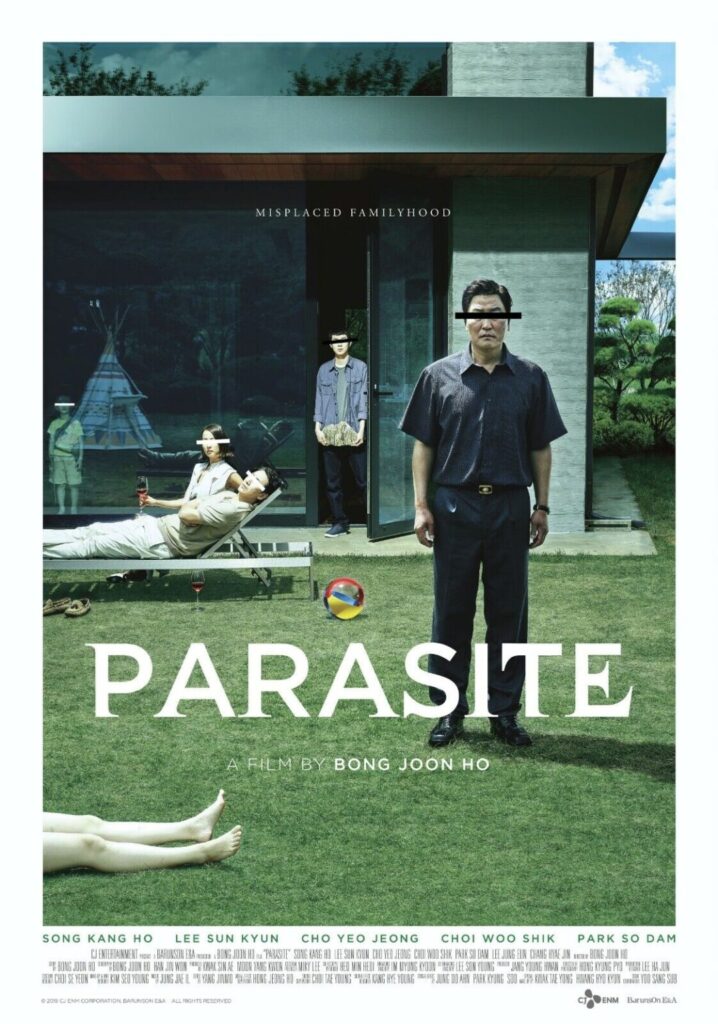Joon Ho’s “Parasite” a cinematice masterpiece

Bong Joon Ho’s “Parasite” is a cinematic masterpiece that transcends genres and defies easy categorization. Released in 2019, the film garnered international acclaim for its unique storytelling, social commentary, and exceptional craftsmanship. As the first South Korean film to win the Palme d’Or at the Cannes Film Festival and later clinching multiple Oscars, including Best Picture, “Parasite” has left an indelible mark on global cinema.
At its core, “Parasite” is a brilliantly layered exploration of class disparity and social hierarchy. The film follows the impoverished Kim family as they cunningly infiltrate the lives of the affluent Park family, taking on various roles within their household. Bong Joon Ho employs a masterful blend of dark comedy, suspense, and social satire to weave a narrative that keeps the audience on the edge of their seats while simultaneously prompting profound reflection.
The film’s strength lies in its meticulous storytelling and character development. The Kim’s, living in a cramped semi-basement apartment, are struggling to make ends meet. When the opportunity arises for their son, Ki-woo, to tutor the Parks’ daughter, the Kim’s seize the chance to infiltrate the affluent household. Each family member gradually integrates into the Park family’s lives, cleverly concealing their true identities. The seamless transition between humor and tension is a testament to Bong Joon Ho’s directorial prowess, creating a narrative that is as thought-provoking as it is entertaining.
“Parasite” skillfully employs symbolism and metaphor throughout its runtime. The architectural contrast between the Kims’ subterranean dwelling and the Parks’ luxurious mansion serves as a visual representation of the social hierarchy that underpins the narrative. The film’s title itself carries layers of meaning, referring not only to the Kims’ deceptive infiltration but also to the parasitic nature of societal structures that perpetuate inequality.
The ensemble cast delivers outstanding performances, breathing life into complex characters that defy simple characterization. Song Kang-ho as Mr. Kim is particularly noteworthy, capturing the essence of a father determined to provide a better life for his family, even if it means resorting to morally ambiguous means. The chemistry among the cast members enhances the film’s authenticity, making the characters relatable despite their questionable actions.
The cinematography by Hong Kyung-pyo is visually striking, with meticulous attention to detail in capturing the stark contrast between the two families’ living conditions. The use of space and framing contributes to the film’s visual storytelling, heightening the tension and emphasizing the disparity between the worlds inhabited by the Kims and the Parks.
“Parasite” seamlessly shifts genres, blending elements of comedy, thriller, and drama. Bong Joon Ho masterfully controls the pacing, creating a rollercoaster of emotions that ranges from laughter to heart-stopping suspense. The film’s unpredictability keeps the audience engaged, as it subverts expectations and challenges conventional narrative structures.
Beyond its narrative brilliance, “Parasite” stands out for its incisive social commentary. Bong Joon Ho explores the inherent inequality within society, critiquing the systemic issues that perpetuate class divisions. The film doesn’t offer easy answers but invites viewers to confront uncomfortable truths about privilege, ambition, and the consequences of societal structures.




